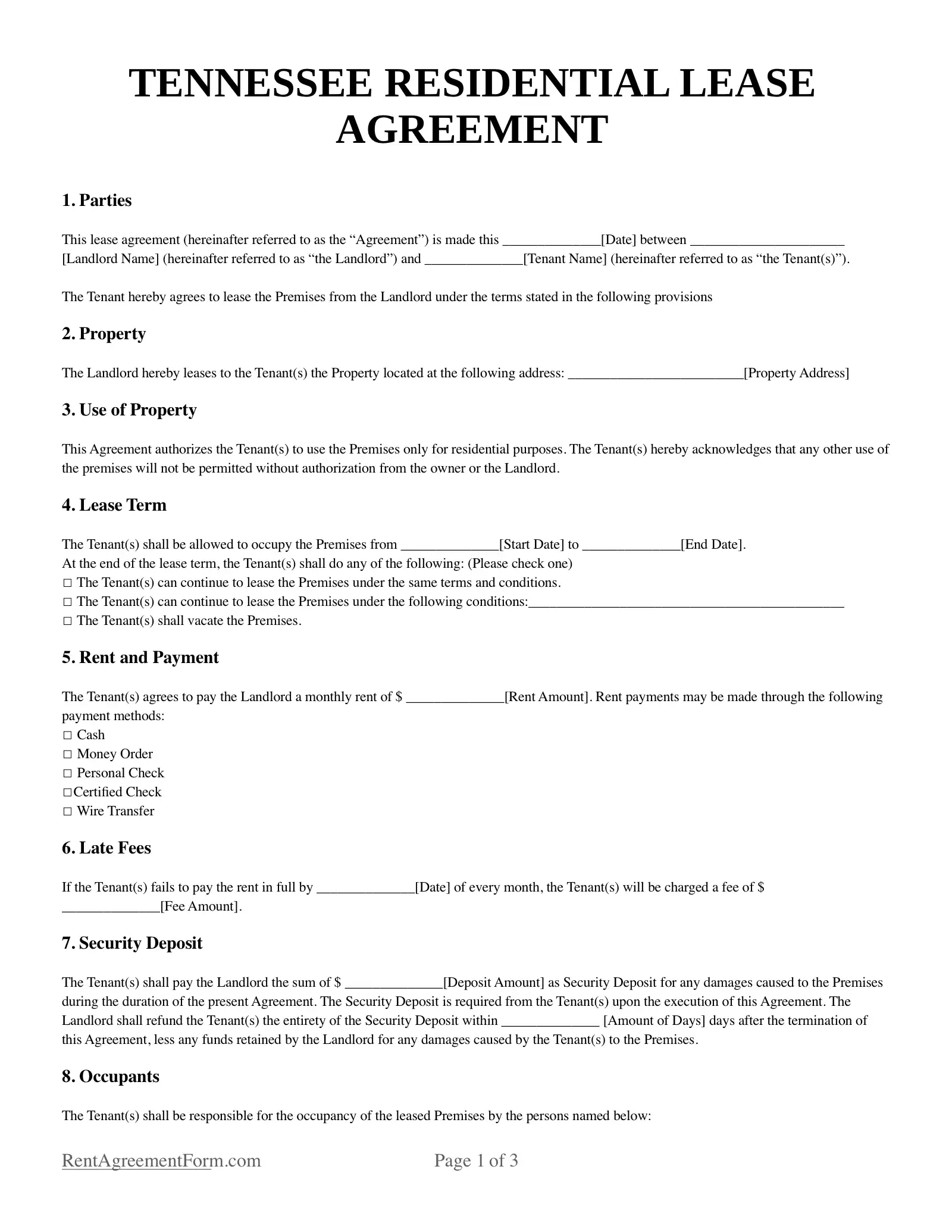Tennessee Residential Lease Agreement Form
Known for its pleasant weather and Southern comfort food, Tennessee is also ranked 2nd on the cheapest places to live in America list.
The standard requirement for renting out any residential real estate in the volunteer state is the Tennessee residential lease agreement form, a binding contract between the landlord and tenant that sets out the terms and conditions regarding the rental transaction and use of the apartment or residential property.
A landlord will ask a prospective tenant to, first of all, fill out a Tennessee rental application form along with a non-refundable application fee. This application allows the landlord to verify the prospective tenant’s credit report. Once approved, they can discuss the terms of the lease agreement.
The lease agreement not only details the rent amount and date of rent payment but also sets out the responsibilities of both landlord and tenant.
The landlord is responsible for ensuring that the property is safe and habitable for the tenant. If repairs are required, the landlord should have them done as soon as possible. On the part of the tenant, they will ensure timely rent payment and take care of the property.

Required Disclosures
- Lead-Based Paint Disclosure - As lead-based paints have been banned since 1978, a landlord is required by Federal Law to inform a tenant about its dangers in the event the property was built before 1978. The landlord is also required to provide the tenant with educational materials about the hazards of lead-based paint (Lead-Based Paint Disclosure Rule (Section 1018 of Title X)).
- Owner’s (or Manager’s) Name and Address - The landlord should disclose to the tenant the names of the owner or manager/agent of the property. The disclosure should be in writing and done before or at the start of the tenancy period. It’s necessary for communication purposes or receipt of notices and other legal matters.
- Property Showing - If the landlord would like to conduct showings of the property up to thirty (30) days before the end of the current lease, it should be stated in the lease. The landlord is also required to give the tenant at least twenty-four (24) hours' notice before any such showing.
Rent Grace Period
There is a five-day rent grace period in Tennessee. This means that if the tenant fails to pay rent on the date specified in the lease, they still have five days to comply. This five-day period excludes Sundays and legal holidays. If the tenant fails to pay rent after the grace period, the landlord can send out a 30-day notice for rent payment or vacating the property. The lease is considered terminated if the tenant fails to comply with the 30-day notice period, and the landlord can now initiate eviction processes (TN Code § 66-28-201 (2021)).
Security Deposits
There is no limit on security deposits in Tennessee, which means the landlord can charge however much they want, within reason. The amount should be deposited into a separate account, although the tenant is not entitled to the interest earned on the security deposit.
At the end of the tenancy, the landlord should return the security deposit to the tenant within 30 days. However, if there was damage to the property or any unpaid rent, then the cost will be deducted from the security deposit. Only damage beyond the regular wear and tear will be considered for deduction. The landlord should provide the tenant with the itemized list of deductions.
The tenant has the right to be present during the walk-through to determine possible deductions, so the landlord should notify them in advance (TN Code § 66-28-301 (2021)).